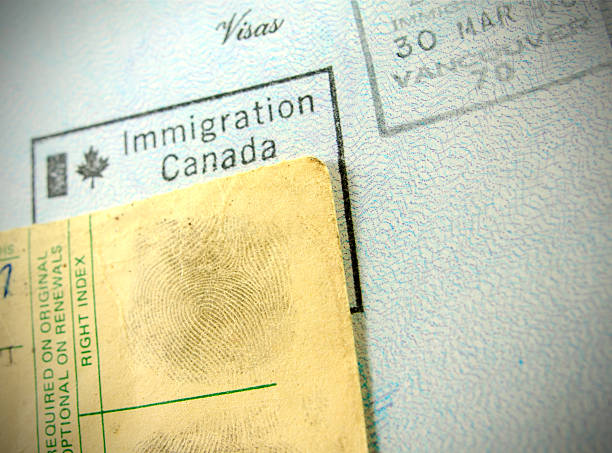Immigration
Visa processing Guidelines – Steps, Application,Duration,
Visa processing is a crucial aspect of international travel, determining whether individuals can enter a foreign country legally and for what purpose.
Understanding the intricacies of visa application and approval is vital for travelers, as the process can be complex, time-consuming, and subject to change.
This comprehensive guide aims to provide a detailed overview of visa processing, covering the fundamental concepts, common visa types, application procedures, and essential tips for a successful application.
What is a Visa?
A visa is a formal authorization issued by a country’s government that permits foreign nationals to enter, stay, or transit within its borders for specific purposes and durations.
Visas are essential for maintaining border security, regulating immigration, and ensuring that travellers comply with the host country’s laws and regulations.
Types of Visas
There are several types of visas, each suited for a certain travel need:
- Tourist Visas: For leisure travel and sightseeing.
- Business Visas: For business meetings, conferences, and negotiations.
- Work Visas: For employment and labor-related activities.
- Student Visas: For educational pursuits and academic programs.
- Transit Visas: For travellers passing through a country en route to their final destination.
- Family Reunion Visas: For family members of residents or citizens.
- Special Purpose Visas: For unique cases, such as diplomatic, humanitarian, or cultural exchanges.
Visa Requirements
Visa requirements vary from country to country and depend on the type of visa being sought. Common requirements include:
- A valid Passport: A passport with at least six months of validity from the intended date of entry.
- Visa Application Form: Completed accurately and honestly.
- Passport Photos: Often adhering to specific size and format guidelines.
- Proof of Travel Itinerary: Reservations for transportation and lodging are included.
- Financial Proof: Demonstrating sufficient funds to cover expenses during the stay.
- Supporting Documents: Specific to the visa type, such as job offers, enrollment letters, or invitation letters.
- Visa Fee: Non-refundable, paid during the application process.
Visa Application Process
- Research: Start by determining the type of visa required and researching the specific requirements of the target country.
- Complete Application Form: Fill out the visa application form accurately, either online or in person.
- Gather Documents: Collect all required documents and supporting materials.
- Pay Visa Fees: Pay the application fee through accepted methods.
- Biometric Data: Some countries require fingerprinting and photographs at designated centers.
- Attend an Interview: Attend a consular or embassy interview if necessary.
- Submission: Submit your application and supporting documents to the appropriate authorities.
- Visa Processing Time: Wait for your application to be processed, which can vary widely.
- Visa Approval or Denial: Receive the visa decision, along with an explanation for any denials.
- Travel Planning: If approved, plan your trip according to the visa’s terms and conditions.
Visa Processing Tips
- Apply Early: Begin the application process well in advance of your travel dates to account for potential delays.
- Check Visa Validity: Ensure that your visa is valid for the entire duration of your intended stay.
- Follow Instructions: Adhere strictly to the application guidelines and provide all required documents.
- Honesty Matters: Be truthful on your application and during interviews, as dishonesty can lead to visa denials.
- Consular Websites: Refer to the official website of the country’s embassy or consulate for the most up-to-date information.
- Seek Professional Help: If the process seems overwhelming or complex, consider consulting a visa consultant or attorney.
- Visa Waiver Programs: Check if your nationality is eligible for visa waivers or electronic travel authorizations, as this can simplify the process for certain countries.
FAQS
How Long Does It Take to Get a United States Visa?
In general, it takes 3–5 weeks to process a visa application for the United States.
You should learn if your application has been granted or denied 3 to 5 weeks after finishing your application and embassy interview.
Your passport will now be mailed to your address, which could take an extra two to three working days.
If your application is rejected, it can spend some time in limbo.
Your visa application may be processed in up to 60 days from the day of the embassy interview. Your visa might be denied in specific circumstances after six months.
This is especially typical in cases where your application is denied following INA Section 221(g).
Your visa application will probably take longer if you have to request a waiver of ineligibility to submit it. After your embassy interview, you might have to wait 6 to 8 months to hear back.
How Long Does It Take to Get an ESTA?
You should be qualified to use the Electronic System for Travel Authorization (ESTA) to request entry into the United States if you are a national of one of the 38 nations listed on the Visa Waiver Program list.
Online ESTA applications can be finished quickly. Your ESTA application will typically be answered within an hour, sometimes even in a few minutes.
Most ESTA applications are processed in under 24 hours.
What is the process for getting a visa for the USA?
You should complete the following easy steps to apply for a US visa at a US Consulate or Embassy in your country of residence:
- Verify your visa requirements.
- Decide which US visa category you want to apply for.
- Complete the DS-160 Nonimmigrant Visa Application Form.
Is a U.S. visa available in Nigeria now?
You may obtain a US B1/B2 visa if you are a citizen of Nigeria. Fortunately, iVisa provides an online application process for this essential travel document. Remember that this visa is only valid for travel for business, pleasure, or medical reasons.
How do I know if my visa has been approved?
By going to the official website of the organization responsible for providing visas for the destination country, you can check the status of your visa stamping online. You can use your passport number to check the status, or you can use the application or reference number.
What happens after the visa is approved?
When and how your passport and visa will be returned to you will be disclosed if your visa request has been granted. A passport with a visa will often be sent back to the applicant by mail seven to ten days after the interview. Typically, you will also get a sealed packet filled with paperwork.
Conclusion
Visa processing is a critical step in international travel, and understanding the intricacies of this process is vital for a successful journey.
This guide has provided an informative overview of visa processing, from the definition of visas and their types to the application process and essential tips.
By following the guidelines and preparing meticulously, travellers can navigate the visa process with confidence and embark on their adventures around the world.





